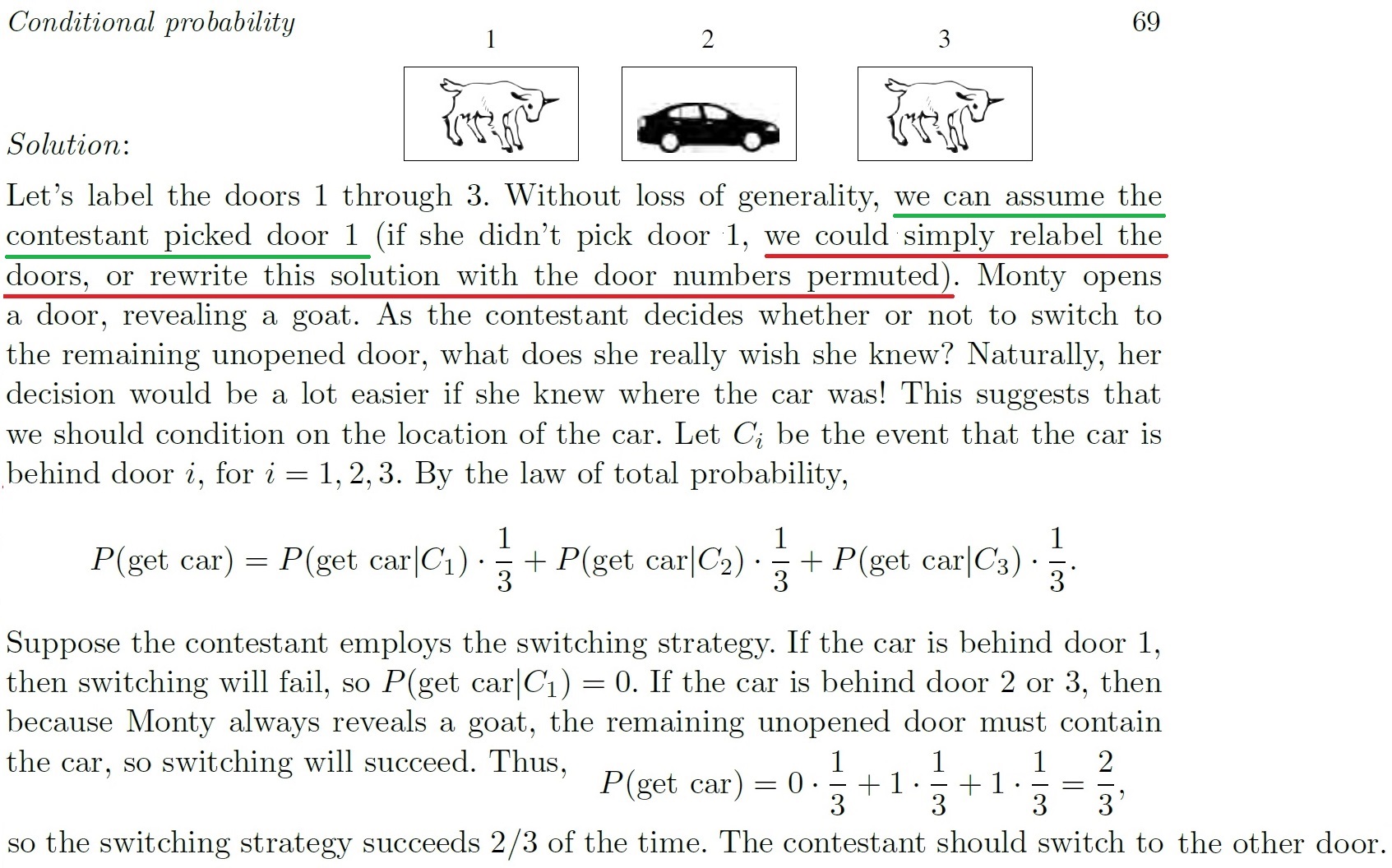My bafflement ought be obvious. 1. A contestant could've picked doors 2, 3. So you can't just assume he picked door 1.
2. Correct me if I'm wrong, but the game show didn't authorize contestants "to relabel the doors, or" permute the door numbers. So what permits you to do any of this in this solution?
>### Example 2.7.1 (Monty Hall).
>On the game show Let's Make a Deal, hosted by
Monty Hall, a contestant chooses one of three closed doors, two of which have a goat
behind them and one of which has a car. Monty, who knows where the car is, then
opens one of the two remaining doors. The door he opens always has a goat behind
it (he never reveals the car!). If he has a choice, then he picks a door at random
with equal probabilities. Monty then offers the contestant the option of switching
to the other unopened door. If the contestant's goal is to get the car, should she
switch doors?
>
Blitzstein. *Introduction to Probability* (2019 2 ed). pp 68-9.


















